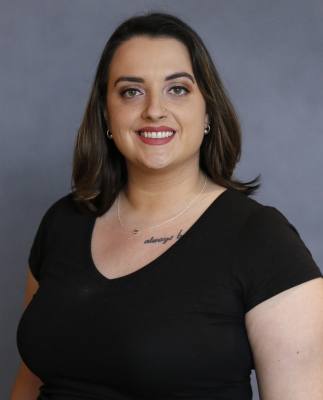UHCL’s Friday Morning Continuing Education program resumes virtually Oct. 2, entering its fifth year. The program, which has previously offered courses on subject material ranging from education in the prison system to playing the Irish tin whistle, brings participants together with various college faculty for weekly sessions.
No homework or reading is required for any of the classes. The first of six topics to be covered this fall is “Police and Youth: Working to Reduce the Social Distance,” taught by Everette Penn, a professor of criminology, at 9:30 a.m. Oct. 2.
The courses showcase the interesting and exciting things UHCL faculty are involved in on campus, Program Director Christine Paul said.
“We were wanting to create a variety of programs to appeal to everybody,” she said. “No topic has really been rejected: ... all different ideas, all different perspectives.”
The Oct. 2 class will include discussion about the international Teen and Police Service Academy, which has “provided training, teaching, research and programming with thousands of police officers, youth and adults to reduce their social distance,” per UHCL’s website.
It will also explore social distance not in the context of the COVID-19 pandemic, but instead as a sociological term. Classmates will analyze the dynamic between civilians and law enforcement officers as well as the tension between police and the communities they are meant to serve, according to the website. Previous continuing education classes have dealt with “the color of the law” as it relates to police traffic stops and civil rights as they relate to police.
Not all classes involve subject matter about police: Five classes have been taught in the past about different aspects of life in the Amazon region, and two classes involved learning about local history. Another popular class from 2018 was “Shell We Gather? A Guide to Beachcombing on the Gulf Coast,” according to Paul and program volunteer Ellen King.
“They’re just fun and informative,” King said. “I haven’t been to [any class] that I thought was a waste of time. It’s something that I know nothing about, and I know something about it after the class.”
FMCE participants have even returned to teach a class, Paul said. Topic selection is driven by participant interest, and outside speakers or faculty often help teach the material. Participants of any age are welcome, and Paul said she aims to eventually involve high school or junior college students with classes by having participants of various ages brings a new dynamic to discussions, she said.
Although classes are typically held twice weekly at UHCL’s Bayou Buildings, they will take place once weekly over Zoom for the rest of 2020. Other topics to be covered between Oct. 2 and Nov. 6 include women in 1950s radio, Mexican antifascist music of the 1930s and the complicated process that launches U.S. presidential campaigns.
Participants pay a one-time $26 membership fee, after which each class costs an additional $18; following the first $44 class, the cost remains $18 per session.
There are no limits on class size, Paul said, but the program operates each year on a “shoestring budget” and is actively seeking grant funding.
The FMCE program aims to expand educational opportunities in the Houston area, and Paul said while some topics might be more interesting than others, presenters always manage to open and change minds.
“I can see that [participants] are changing, and that’s great at any age,” she said.





